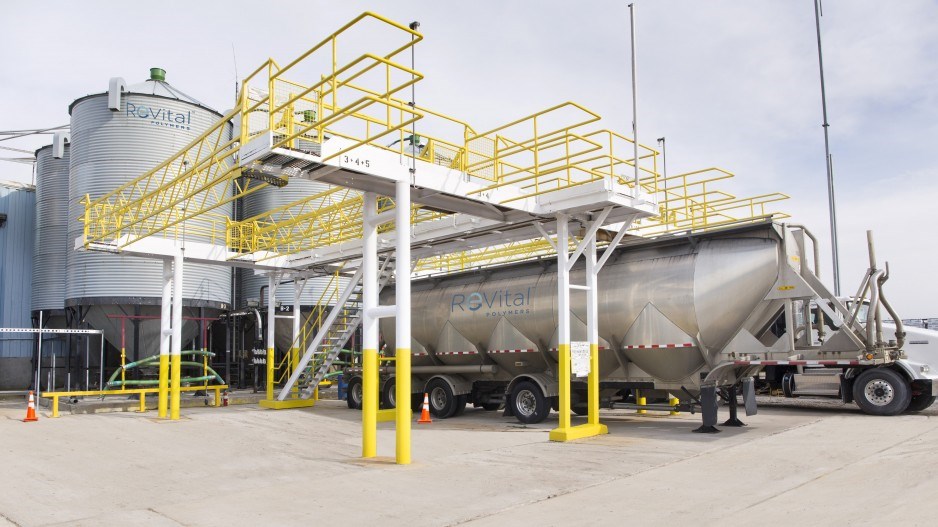Nova Chemicals, a petrochemical company headquartered in Alberta, is planning a “multi-million dollar” investment in a B.C. plastics recycler, with the aim of blending recycled plastics into the polyethylene it makes from natural gas.
Nova Chemicals is a $10 billion company that operates petrochemical plants in Alberta, Ontario, Ohio, Pennsylvania and Louisiana. It makes polyethylene – the most ubiquitous form of plastic -- from ethane, a component of natural gas.
Nova’s investment in Merlin Plastics will allow the B.C. company to expand and increase its production of recycled polyethylene.
Neither Nova nor Merlin would say how much the investment is worth, except that it is a multi-million dollar investment that will allow Merlin to add new equipment in B.C. and increase its production capacity by about 20%.
“We’re going create employment in terms of building the plant – adding additional capacity – and also finding new markets with Nova Chemicals,” said Tony Moucachen, Merlin’s founder and president.
The investment will be for plant upgrades that will allow Merlin to make recycled plastics that meet American Food and Drug Administration standards for use in food packaging.
The recycled plastic pellets that Merlin produces will be blended in with the “virgin” polyethylene that Nova makes for food product packaging. After the expansion, B.C. will be shipping out almost as much plastic as it consumes.
“We last year shipped about 35 million pounds of polyethylene to British Columbia,” said Nova Chemicals CEO Luis Sierra. “So when this ramps up with Tony, we’ll be getting back about 30 (million pounds). So, nothing is more circular than that.”
Merlin Plastics is a made-in-B.C. green business success story. The company started 30 years ago as a two-person operation, thanks to a $270,000 loan from the B.C. Ministry of Environment.
It now employs 300 people, with about 100 of them in B.C. Merlin also has plastic recycling plants in Alberta, Ontario, California and Oregon. In B.C., it operates a collection and sorting depot in New Westminster and a processing plant in Delta.
The company’s growth is in no small part due to the fact B.C. was one of the first jurisdictions in North America to introduce an extended producer responsibility levy to help pay for recycling of everything from bottles to newspapers and plastics.
The company started with recyclable plastics just from B.C., but now imports recyclable waste plastic from other provinces and Pacific Northwest states.
With growing concerns about the amount of plastic that ends up in landfills and in the oceans, companies like Coca-Cola (NYSE:KO) and Walmart Inc. (NYSE:WMT) have pledged to increase the amount of recycled plastic in their products to 25% by 2025, said Nova Chemicals.
Global demand for recycled plastic is therefore expected to increase significantly over the next five years
S&P Global Platts Analytics forecasts that, of all plastics used in 2020, 8% will be from recycled plastics. That is up from 7% in 2019.
“We expect the need for (recycled plastic) to increase tenfold in the next five years,” Sierra said.




